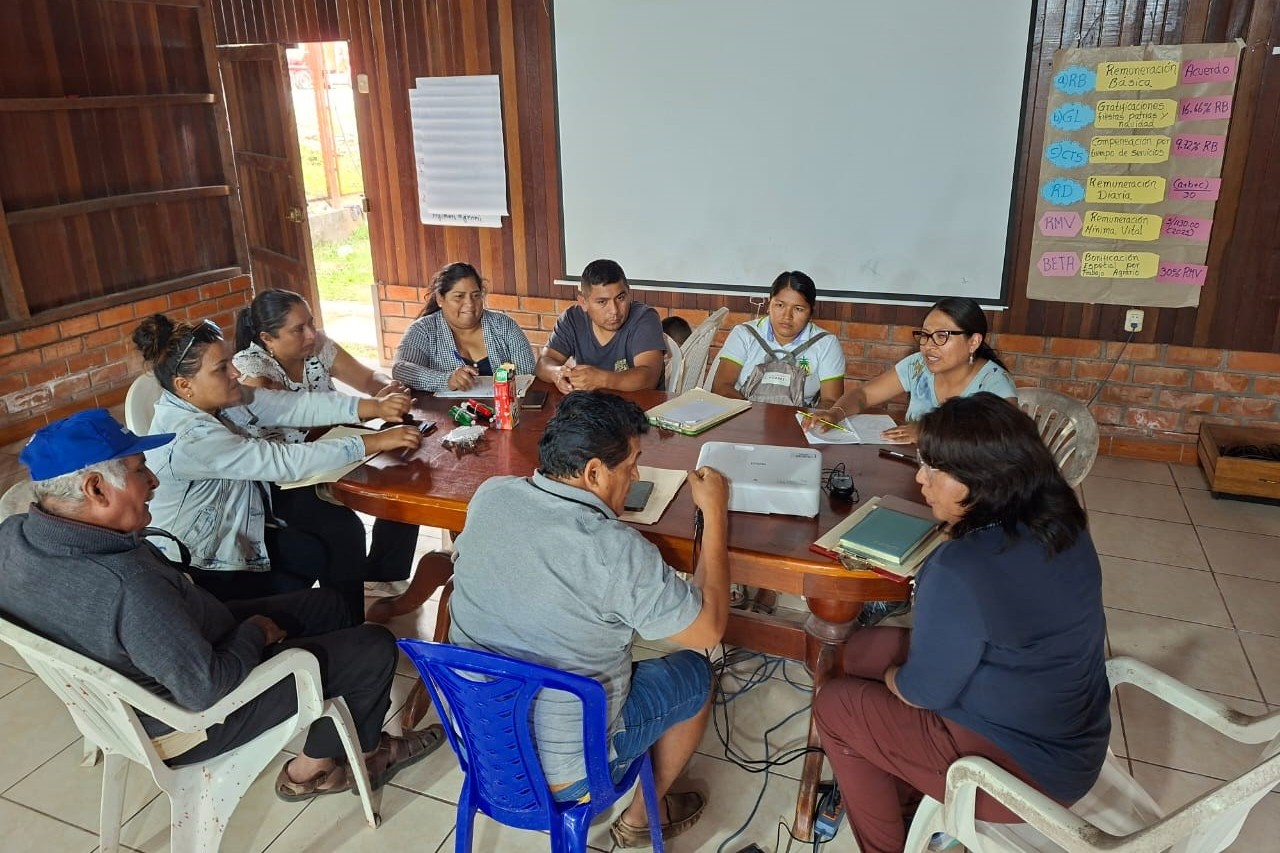Contact us: digitalwages@ilo.org
ILO and UNDP join forces to strengthen the capacity on digital wage payments of oil palm growers in Ucayali, Peru | Empresarios palmicultores de Ucayali se capacitan con apoyo de la OIT y el PNUD para digitalizar de forma responsable el pago de salarios

Lea el artículo en español aquí.
According to the 2024 Permanent National Employment Survey, nearly 80 percent of employment in the Ucayali region in Peru is informal. Within the small formal sector, more than 50 percent of salaried workers in formal companies are paid in cash (official data from the electronic payroll of March 2025 from the Ministry of Labour and Employment Promotion). In addition, only 39 percent of the population has access to an account with a financial institution, mainly in urban areas. For these reasons, it is important to promote wage digitalization to improve business efficiency, financial inclusion, and job formalization, while also supporting the development of appropriate infrastructure and an inclusive financial ecosystem.
In this context, the ILO’s Global Centre on Digital Wages for Decent Work, in strategic partnership with the Sustainable Productive Landscapes in the Peruvian Amazon project—an initiative of the Peruvian State led by the Ministry of the Environment with technical support from the United Nations Development Programme (UNDP) and funding from the Global Environment Facility (GEF)—is delivering a series of trainings to promote digital wage payments among small-scale oil palm growers in Ucayali, as part of compliance with social and environmental standards in their production schemes.
The trainings aim to promote the responsible digitalization of wage payments in small palm grower enterprises. On June 6 and 7, 2025, this work began with a workshop held in the district of Neshuya, targeting palm growers who are part of the Central Committee of Palm Growers of Ucayali (COCEPU) and the Association of Palm Growers of Shambillo (ASPASH). More than 46 palm-growing entrepreneurs participated in this event. They were provided with knowledge about the use and benefits of digital wage payments, highlighting the importance of a successful and responsible transition.
The workshop also outlined the steps to implement responsible wage digitalization, including elements of human resource management such as creating a payroll system, registering workers, and issuing pay slips.

Participants showed great interest in strengthening business management through a focus on labour formalization and payroll digitalization, in line with the ILO’s principles of decent work. They also emphasized the importance of having tools that promote greater transparency, efficiency, and regulatory compliance in their operations.
Participants are committed to implementing digital wage payments as part of a labour formalization process. To help them in their journey towards digitization, palm-growing entrepreneurs are provided with technical advisory support. Efforts are also being coordinated with local offices of the National Superintendency of Labour Inspection and the Ministry of Labour and Employment Promotion, among other entities, including financial service providers, to provide more comprehensive support to small palm growers in the Peruvian Amazon.
This inter-institutional coordination aims to contribute to the sustainable development of the region, promoting fair and responsible working conditions in oil palm production.
